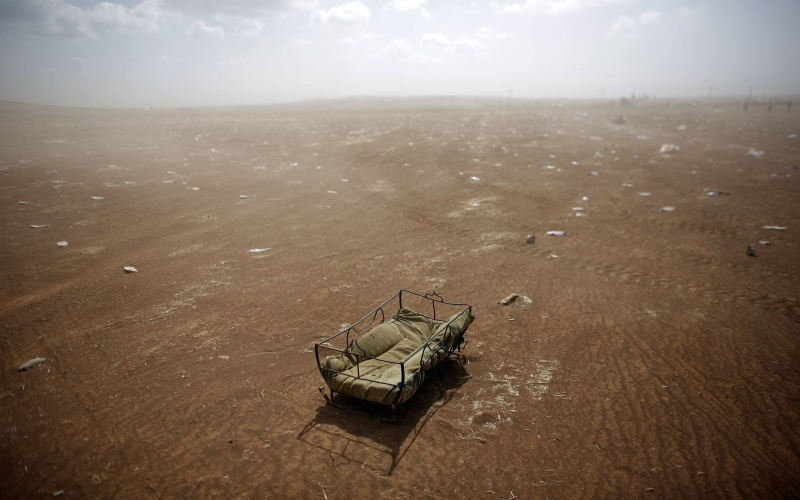
Turkey’s Syria Spillover Problem
I wrote the following piece for Foreign Affairs, arguing that the true threat to Turkey from the Islamic State (IS) is not a military one, but is rather the spillover effects that are going to impact Turkish domestic stability as a result of IS’ rise. To listen to officials from Turkey’s ruling Justice and Development Party (AKP) and read Turkey’s pro-government press is to dive into a happy place in which Turkey has never been better. It is a democratic beacon shining its light on the rest of the Middle East, Prime Minister Ahmet Davutoglu is leading the charge to consolidate Turkish democracy and create a new regional order, the Turkish economy is humming along despite villainous credit rating agencies’ efforts to destroy it, and Turks of all stripes are united behind their government’s various initiatives. The official view from Ankara is sunny indeed — yet the clouds massing on the country’s border presage a hurricane.
AKP rule has brought a measure of stability previously unknown to Turkey. Here, a growing economy and concerted efforts to address Kurdish grievances have contributed. On a more disturbing note, so have the gradual reining in of the free press and open dissent. For better or worse, the country has become safely predictable and the AKP has been able to govern without seriously being challenged. Even those not in the AKP camp acknowledge that today’s Turkey seems eons removed from the days of terrorism and assassinations in the streets, military coups, and runaway inflation. But the chaos on Turkey’s border with Syria threatens to upend all of this. The rise of the Islamic State has threatened Turkey’s internal balance in a number of ways. But the danger does not come from IS itself. Although the group has proved its military bona fides during its rampage through Iraq and Syria, it does not present a serious territorial challenge to Turkey, which has a large NATO-backed army, a modern air force, and the resources to hit back at IS should it choose. Rather, it is the follow-on effects of IS’ march through the region that may herald a return to the bad old days.

